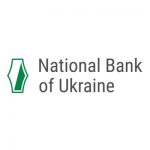Fraud Prevention
Course description
One of the major by-products revealed during the financial crisis is fraud and recent cases of Satyam and Bernard Madoff are only some of the examples showing the scale of the problem.
Fraud presents big challenge for banks and financial institutions requiring them to radically modify behavior and increase vigilance in many activities.
This timely course is essential for all financial institutions and especially risk, audit and compliance officers who are on the frontline of fraud mitigation. Delegates will have a chance to explore the latest fraud prevention techniques and analyse the implementation of efficient operational systems and policies.
What will you learn
On completion of this course you will:
- Understand different types of fraud and gain tools to identify them
- Learn about the techniques used in the high tech crime
- Explore cheque fraud
- Know the fundamentals of setting up internal control systems
- Examine the role and function of CAATS – Computer-Assisted Auditing Techniques
- Explore the role of a compliance officer in fraud prevention
Main topics covered during this training
- Identifying fraud
- Fraud in financial and banking services
- High-tech crime
- Fraud prevention and internal controls
- Using computer assisting auditing techniques – CAAT
- Fraud prevention – the role of compliance officer
- Case studies: Bernard Madoff, Fraud schemes in Nigeria, Satyam
Who should attend
From Commercial Banks, Central Banks, Investment Banks, Asset Management firms’ representatives, Leasing companies, Insurance companies, Fund Managers, Other financial institutions:
- AML & Fraud Prevention Officers
- Compliance
- Payments
- Financial Officers
- Risk Officers
- Internal Auditors
- Operational Risk Managers
- Staff with roles and responsibilities in fraud prevention and in risk management departments, businesses and central departments
Fraud Prevention - A 2 Day Programme
What is Fraud?
- Fraud – an overview
- What is it?
- Why is it committed?
- A Basic definition of fraud
The Fraud Triangle
- Common fraud types
- How fraudsters think
- Impact of fraud
- Criteria for fraud to succeed
Fraud – Nuts & Bolts
- Categories of occupational fraud and abuse
- Asset misappropriation
- Fraudulent statements
- Corruption
- Fraud red flags
- Fraud prevention programs
- Code of business ethics
- Fraud policy
- Compliance programs
- Fraud prevention check up
Fraud in Financial & Banking Services
- Mapping fraud – interactive exercise
- Fraud – An ever present threat
- Evolution of fraud
- Demonstrating to management ROI for FDA
High Tech Crime
- Changing fraud focus
- Key issues
- Skimming
- Counterfeit cards
- Web attack- data hacking
- BIN attack
- Organised crime gangs
- Brand damage and loss of consumer confidence.
- Controls mitigation
- Issuing Controls- CPP detection
- Merchant education (signature checking etc, use ofCVV2.)
- Staff education and consumer awareness
- Effective use of First Data Alert detection
Cheque Fraud
- What is cheque fraud?
- Why is cheque fraud critical
- Cheque fraud evolution
- Who is responsible for prevention
- The numbers
- What cheque fraud mean to business clients
- How cheque fraud works
- Impact of technology
- Cheque risk mitigation
- Positive pay cheque matching
- Payee name match
- Cheque imaging
- Electronic balance & transaction reporting
- Electronic payments
Case Study: Fraud Schemes in Nigeria
- A Quick history of Nigerian fraud
- Common fraud schemes in Nigeria including:
- Case Study: advance fee fraud
- Case Study: malicious code
- Case Study: credit card information
Day Two
Fraud Prevention & Internal Controls – Part I
- Review – What do we mean by fraud?
- What are real internal controls?
- 10 reasons controls break down
- The impact of beliefs towards fraud
- Five common fraud beliefs
- Better beliefs
- Common risks for organizations
- Fake vendor scheme
- Theft of donations
- 10 good ideas for creating an anti-fraud environment
Case Study: Satyam
- Who is SATYAM?
- SATYAM – The Devastating Announcement
- Why Satyam fell
- Events Leading to the Fall
- Events After the Fall
Fraud Prevention & Internal Controls – Part II
- Review of the internal controls
- Key aspects of Internal controls
- Segregation of duties
Using Computer-Assisted Auditing Techniques to Detect Fraud
- What are CAATs?
- Data analysis methodology
- Types of CAATs
- The data analysis process
- Data mining
- What is data mining?
- Data mining in solving crimes
- Getting data
- Fraud detection
- Using data mining to fine financial statement fraud
- Examples of fraud analysis
- Detection Techniques: digitizing
- Case Study: Bearings Bank
- Case Study: The fool service motor pool
Fraud Prevention – The Role of the Compliance Officer
- Knowledge is liability
- Responsibilities for fraud prevention and detection
- How well do you Know Your Employees?
- Anomalies and symptoms
- Fraud Indicators – Finding the truth
- Internal controls
- Cash misappropriations
- Embezzlement
- Skimming & lapping
- Larceny
- Fraudulent disbursements
- Elderly exploitation
- Three common questions to fraud investigations
- The employees’ role
Case Study – Bernard L Madoff Investment Secureties
- A brief history
- A long list of red flags
- the final analysis
- The continuing investigation
- Madoff by the numbers
Trainer
FAQ
We offer banking and finance courses as well as soft skills and business management training. You can either attend an open public course in London or Dubai or arrange customised in-house training to be delivered in any of your offices worldwide.
Most of our public courses are run over 2 full days. Some programmes are offered as a 1 or 3 day training.
In-house training is tailored to client’s requirements and can be organised over 1 day, 2-3 weeks or longer.
Public courses are organised mainly in London and Dubai. Occasionally we organise courses in other centres like Paris or New York. Check our public course calendar for the current list of programmes. We use a range of training venues, all in the centre of the cities and with excellent transport links to the airports and train stations.
In London we use venues in the centre (near Oxford Circus station or in Mayfair) or in the City (near Liverpool Street or Moorgate stations).
In Dubai our courses are organised in one of 4-5* hotels in the Deira district. Once you register we will send you detailed information together with accommodation options if required.
Our in-house courses can be delivered anywhere in the world. We work with over 25 trainers worldwide. Contact us do discuss your requirements. Check our list of available programmes.
Our courses are run in central locations from 9 a.m until 5-5.30 p.m. There are 2 coffee breaks and a lunch break. Lunch is always provided in the venue.
Dress code is smart casual.
All our programmes are taught by senior specialists who have spent many years in their respective sectors, working as senior managers and head of departments, so they understand very well the market and the challenges you are facing.
The experience of our trainers allows us to create very practical programmes, focused on current market trends and challenges. You can be sure that you will gain the knowledge which can be instantly applied in your workplace after the course. You will be analysing real life case studies, take part in group exercises and discussions as well as role plays, whenever applicable.
We want our courses to be as practical and interactive as possible so we limit the number of participants in order to optimise your time with the trainer and allow you to ask questions which are important for you.
In order to understand your requirements and expectations, we will send you a pre-course questionnaire.
You will also receive post-course support so if you have any questions after you left the training, you are welcome to contact us.
There are 2 easy ways to register:
- Go to the course of your choice and click Register Now button to fill the registration page
- Email us to enquiry@eurekafinancial.com
After you register, we will send you registration confirmation and an invoice so you can arrange the payment. Please note that your place is not confirmed until we receive it.
If you register within Early Bird discount period, there’s limited time to arrange the payment in order to be eligible for the discount. You will find all the details on the invoice.
We don’t advise to make any travel and hotel arrangements until you receive full course confirmation from us.
We will send you venue and course details as soon as possible but most likely about 3-4 weeks prior to the course commencement.
You can pay by:
- Making a bank transfer
- Debit/credit card
- Cheque payable to Eureka Financial Ltd. - only within UK
Just mark preferred paying option on the registration form. Whichever form of payment you choose we will always send you an invoice.
If you pay by card, a 2.2% processing fee will be added. We will send you authorisation form so you can give us your card details.
Included in the price of a public course are:
- Course tutorial
- Take away course materials
- Course Certificate
- Lunch on the days of the training as well as drinks and snacks throughout the course
The price doesn’t include accommodation, flights, transfers and any additional costs outside of the training venue.
Yes, we always offer Early Bird discount, so the sooner you register the more savings you can make. We also offer group discounts and if you register for 2 or more programmes at the same time.
If you are a full time student or unemployed, we offer a 25% discount of the full price of the training. Student ID or unemployment status confirmation is required to claim this discount.
If you attend one of our courses you will be entitled to a special discount for a year after the last course you attend with us. Also, if you have attended and recommended us to a friend, both you and your friend will receive a special discount. You will receive more information about it after you attend the course.
See our Customer Loyalty Discounts page for more details.
All our courses based in the UK are subject to the VAT charge of 20%. This fee is irrespective of the country of residence of the delegates.
You can, however, claim the VAT back by contacting UK tax office - HMRC, and filling the relevant form, as long as you comply with the following rules:
For Delegates coming from the EU countries
If you represent a registered business in another EU country, you can use the Refund Scheme to reclaim VAT you pay in the UK as long as all of the following apply:
- You're not registered for VAT in the UK and don't have to, or can't be, registered here
- You don't have a place of business or a residence in the UK
- You don't make any supplies in the UK
You can find some more information here. In order to claim the VAT you have to fill Form 65.
For the Delegates from Non EU countries
If you represent a registered business in a non-EU country, you can use the Refund Scheme to reclaim VAT you pay in the UK as long as all of the following apply:
- You're not registered for VAT in the UK and don't have to, or can't be, registered here
- You don't have a place of business or a residence in the EU
- You can only use the Refund Scheme if your own country operates a similar scheme and makes it available to UK businesses. If your country has its own Refund Scheme but doesn't let UK businesses use it, you can't claim under the UK Refund Scheme.
- You don't make any supplies in the UK
If the following rules apply to you, please fill the 65A form and send it to HMRC.
Webinars
You can cancel your participation up to a month before the course and receive a refund minus 10% of the full course value. Between 2-4 weeks before the course you will be charged 50% cancellation fee and if you cancel less than 2 weeks before the course you can only offer your place to a colleague. Up to 2 weeks before the course you can reregister for another edition for 10% reregistration fee if there is another webinar offered or you can rebook for a course in London by paying the difference in price plus 10% reregistration fee.
Classroom Courses
If there is any official travel restriction or difficulty related to the COVID pandemic around the time of the course we will convert the training into a webinar or offer to attend the next classroom edition at no extra cost.
If you are unable to attend the course, you can either send a replacement at no extra charge or, up to 10 days before the training, you can transfer your booking to another edition within the next 6 months paying administrative fee of 20% of the full course price. For any cancellation requests received between 11 days and 4 weeks from the course we offer 50% refund or reregistration to another edition for 25% of the value of the booking. For any cancellation requests received more than 4 weeks before the course date we will offer a refund less an administration fee of 10% of the full course price.
Cancellations must be made in writing (letter or email) and reach our office four weeks prior to the course date. We regret that only limited refunds can be given after this period as per points above. Non-attendance without any notification will be charged at full rate. Your place on a course is not guaranteed until we receive the payment. All payments must be made in full before the course date.
All our trainers have been working for many years in their respective sectors before they begun to teach so they bring a wealth of practical experience to the classroom.
Most of them used to work for 15 or more years in the financial sector and corporate world, and were holding positions of Directors, VP and Senior Managers. Some of them have published books and have written articles for specialised magazines and newspapers including FT, The Independent, The Times etc. You can find detailed biography of each trainer on the page of the course you want to register for.
Yes, you will receive a Certificate of Attendance at the end of the course you attend.
If you have to apply for a Visa to attend a course in the UK, we will issue a letter to support your application. The letter will be issued only after the payment for the course has been made.
It is delegate’s responsibility to obtain a Visa and failure to do so will not make the participant exempt from the cancellation policy.
Anyone suspected of applying for a training course simply to gain a Visa letter will be reported to their embassy.
We will need the following information to issue an invitation letter:
- Full name as it appears on your passport
- Date of birth
- Passport number
- Passport issue date
- Passport expiry date








